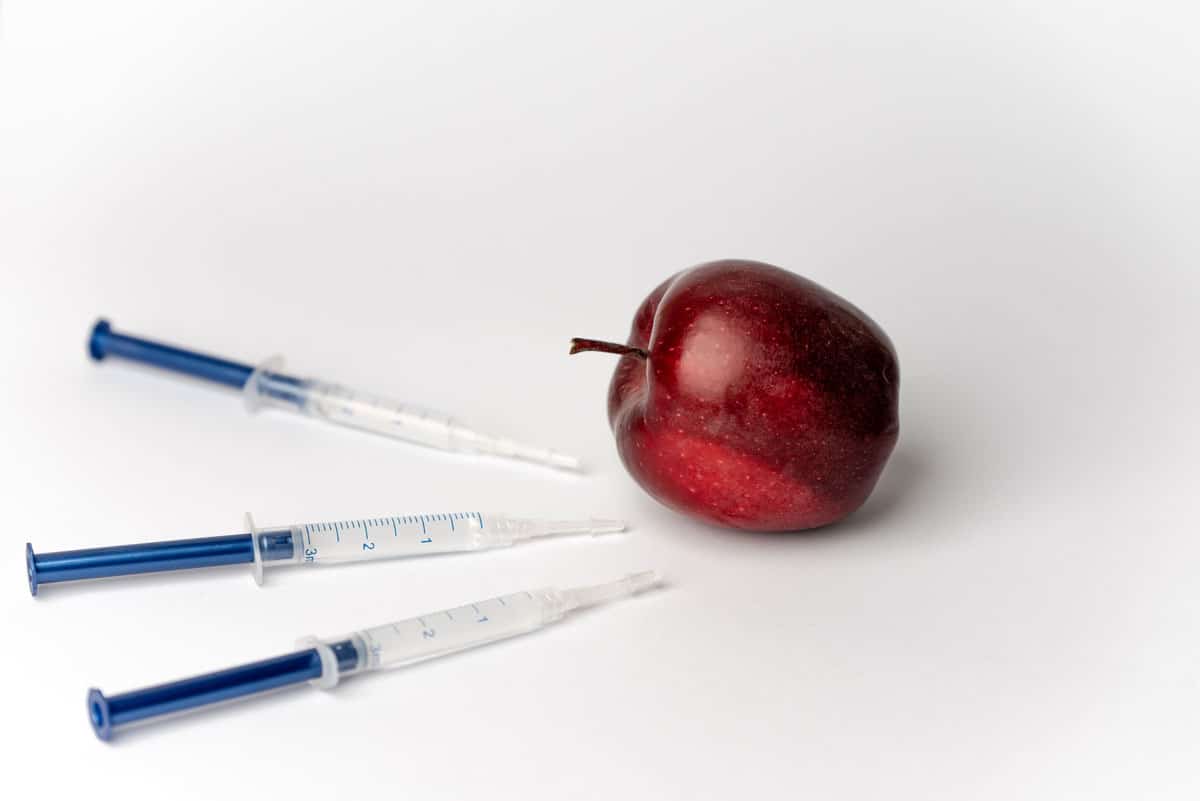Weight loss injections have taken the country by storm. Having become an increasingly popular way to shed some extra pounds, medications such as semaglutide are being prescribed much more frequently. By helping to suppress appetite and control blood sugar, these weight loss injections are a powerful addition to a comprehensive weight loss plan. Exercising and eating well while using the medication will help you drop the weight and, more importantly – keep it off.
How Weight Loss Medications Work
Semaglutide is a medication called a GLP-1 (glucagon-like peptide-1) agonist. GLP-1s are naturally occurring hormones in the body. Traditionally used as a treatment for type 2 diabetics, it works by slowing down how fast the stomach empties itself, thus reducing appetite. Weight loss injections make reducing calorie intake easier and help with losing weight overall. They also improve sensitivity to insulin, which helps regulate blood sugar levels.
Eating to Support Your Weight Loss Goals
Now, let’s look at the types of foods that will support your weight loss journey while taking weight loss injections.
High-Protein Foods
Why it’s important: Focusing on high-protein food with each meal is essential to maintain muscle mass and help to feel fuller for longer after meals.
What to eat: Remember – calories still matter. Choose foods that are high in nutrients and low in saturated fat. Options include:
- Lean meats, such as chicken, turkey, pork cuts with the word “loin” in their name, and beef cuts such as round, sirloin tip, and top sirloin
- Fatty fish, such as salmon, mackerel, anchovies, sardines, and herring. These are also high in omega-3 fats.
- Beans
- Eggs
- Nuts and seeds
- Low-fat dairy
- Tofu
How it supports weight loss: Protein is the primary building block of body muscle. When you have more muscle mass, your body burns more calories at rest. A high-protein diet increases metabolism, which reduces calorie intake.
Whole Grains
Why it’s important: Whole grains are high in fiber, essential for digestion, and leave you feeling fuller for longer.
What to eat:
- Brown rice
- Oats
- Quinoa
- Barley
- Corn, including popcorn
- Rye
How it supports weight loss: Foods high in fiber, such as whole grains, slow the digestive process. This prevents the feeling of being hungry soon after eating. People who eat a lot of whole grains tend to have a lower BMI (body mass index), reduced midsection weight, and increased metabolism.
Diverse Vegetables
Why it’s important: Vegetables add bulk to meals without increasing calorie intake. By consuming a wider variety of vegetables, you will get a broader range of nutrients, such as fiber, vitamins, minerals, and antioxidants.
What to eat:
- Vegetables like cauliflower, spinach, kale, broccoli, and brussels sprouts are high in fiber
- Bell peppers, zucchini, and eggplant are full of antioxidants that help reduce inflammation
- Root vegetables such as sweet potatoes, carrots, and beets help to support healthy blood sugar levels and are a good source of vitamins A and C
How it supports weight loss: Vegetables naturally contain a lot of water and fiber, so you feel fuller after eating, but eat fewer calories. In addition to supporting weight loss, eating a variety of vegetables helps prevent and manage diseases such as heart disease, cancer, and diabetes.
Healthy Fats
Why it’s important: Healthy fats are fats with monounsaturated and polyunsaturated fats. These support heart health and lower the risk of heart disease. Healthy fats also support brain health, reduce inflammation, manage mood, fight fatigue, and maintain gut health.
What to eat:
- Avocadoes
- Nuts and nut butter
- Fatty fish, such as salmon, mackerel, anchovies, sardines, and herring. These are also high in protein.
- Seeds, like flaxseeds and chia seeds
- Olive oil
How it supports weight loss: Healthy fats provide long-lasting energy and can help you feel fuller for longer, which helps with weight loss. They also help regulate blood sugar, which can help reduce sugar cravings.
Hydration
Why it’s important: Adequate hydration is necessary for weight loss and overall health. Sometimes thirst can be mistaken for hunger and can lead to unnecessary snacking.
What to drink:
- 8-10 cups of plain water a day
- Sparkling water or water infused with fresh fruit
- Herbal teas with no added sugar or honey
How it supports weight loss: Drinking water before a meal can help you feel full and eat less during a meal. As water contains no calories, it reduces overall calorie intake and supports the body’s processes working optimally, such as your metabolism and waste removal.
Foods to Avoid Consuming Regularly
It’s important to remember that moderation is key. Don’t feel guilty if you splurge on occasion with unhealthier food options. However, trying to sick with whole foods as most of your meals will benefit your waistline and your health. Here are some foods to avoid eating or drinking regularly:
- Sugary snacks and drinks like soda, pastries, and candy
- Refined carbohydrates like white bread and pasta
- Processed pre-packaged meals and snacks
- Alcohol
Balance Is Key
Not all calories are created equal. For example, 100 calories in a healthy food is one apple, one banana, a small handful of peanuts, and a handful of blueberries. 100 calories also look like half a brownie, a tiny slice of carrot cake, and half a bag of potato chips. The calories are the same, but the healthier options give protein, fiber, and nutrients, whereas the unhealthier options are empty calories.
Final Bite: Fueling Success for Weight Loss Injections
Achieving your weight loss goals will no longer be an uphill battle. Combining weight loss injections with nutrient-dense food like lean proteins, fiber-rich veggies, and hydrating fluids will enhance your weight loss injections’ effectiveness. Not only will you see the difference in your weight, but also in your overall metabolism, digestion, and energy. A balanced diet is key to maximizing the benefits of semaglutide and hitting your goals.
At Soza Clinic, we’re here to support you in every way, making your weight loss goals more attainable and more sustainable. If you would like to learn more about our medical weight loss programs in Richardson, TX, you can contact us online or call (972) 808-5146.

